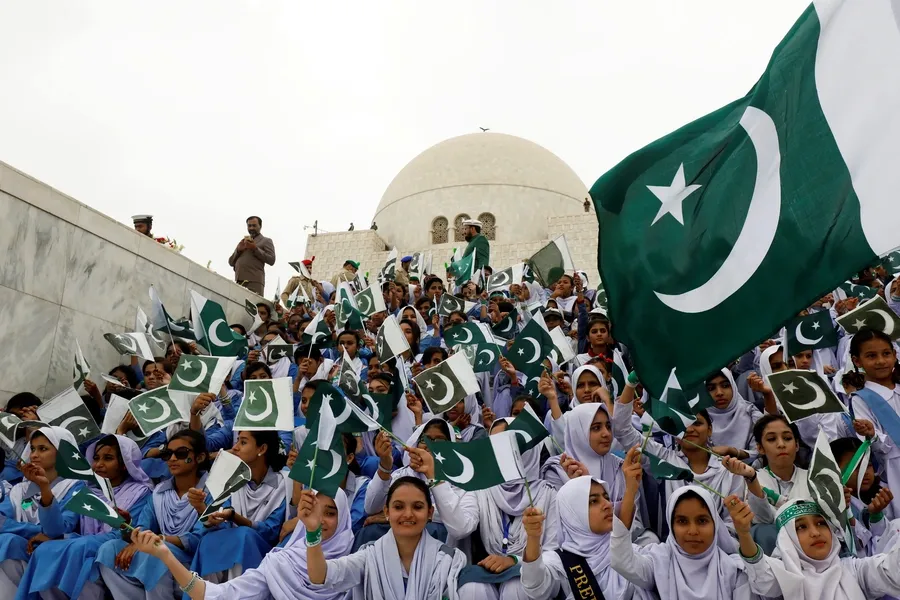The Unyielding Spirit of Pakistan

Seventy-seven years have passed since Pakistan emerged on the world map, born from the dream of a homeland where a people could live with dignity, faith, and self-determination. The journey has been turbulent, a constant switch between hope and hardship, but it has also been defined by a resilience that refuses to be extinguished.
From the mass migrations of 1947, when millions left behind everything they owned for the promise of a new beginning, to the present day, the people of Pakistan have shouldered burdens that would have broken many nations. Partition was one of the largest human displacements in history; over 14 million people crossed newly drawn borders, enduring violence, famine, and separation from loved ones. Yet amid the tragedy were countless acts of courage and generosity, strangers offering shelter, sharing scarce food, and opening their homes to those with nothing left.
Pakistan’s early years were marked by political instability, the trauma of war, and a daunting challenge - to build institutions from scratch. Yet even in the chaos, seeds of progress took root. The country’s textile industry began to grow. Karachi, once a small port city, transformed into a bustling economic hub. Literacy campaigns, small but determined, began to chip away at the darkness of illiteracy.
Comparisons with other nations offer perspective. The United States took decades after its independence to reconcile its identity, enduring civil war and deep economic divides. Singapore, today a symbol of stability, faced crippling unemployment and ethnic tensions in its early years, only finding its economic stride decades later. Nations rarely emerge fully formed; their journeys are marathons, not sprints. By that measure, Pakistan’s survival and achievements, despite its challenges, are remarkable.
There are stories, personal, grounded, and powerful, that capture the nation’s character. The rickshaw driver in Lahore who spends his mornings ferrying children to school for free because he believes education is the only way forward. The schoolteacher in rural Sindh who walks miles each day to reach her students because there is no road access to her village. The young tech entrepreneur in Karachi who builds apps in the dim light of a generator-powered bulb, competing in global markets despite electricity outages and limited resources.
These are not isolated stories; they are the quiet heartbeat of Pakistan, citizens who work, create, and serve without waiting for perfect conditions. In times of disaster, the pattern repeats. When the 2005 earthquake devastated northern Pakistan, volunteers flooded the affected areas long before official aid arrived, bringing tents, food, and hope. During the 2022 floods, ordinary citizens pooled donations, cooked meals, and waded through waist-deep water to rescue stranded families.
The country’s culture remains one of its greatest strengths. From the poetry of Faiz Ahmed Faiz and the music of Nusrat Fateh Ali Khan to the vibrant truck art and the explosion of digital creativity among young Pakistanis, there is a refusal to let hardship define identity. The arts here are not merely entertainment; they are acts of defiance, of declaring beauty in the face of adversity.
Pakistan’s diaspora also plays a critical role. From doctors in the UK’s NHS to engineers in Silicon Valley, millions of Pakistanis abroad send not just remittances, which make up a significant portion of the national economy, but also ideas, skills, and connections. These global ties are a bridge to innovation and opportunity.
It is true that political instability has been Pakistan’s recurring wound. Corruption, governance failures, and missed opportunities have slowed progress and fueled cynicism. Yet the same political history also shows a persistent demand for accountability. From the lawyers’ movement that restored judicial independence to the growing civic activism, there is evidence that the public’s patience for dysfunction is wearing thin.
Perhaps the greatest reason for hope lies in demographics. Over 60% of Pakistan’s population is under the age of 30. This generation is more connected to the world, more educated, and more aware of their rights than any before it. In their hands lies the possibility of reshaping the country’s trajectory. History shows that nations often reinvent themselves when a critical mass of youth demands change.
The challenges ahead are undeniable: climate change threatens water security; the economy requires structural reforms; education must become both accessible and high quality. But history is also clear, nations are not defined solely by their problems. They are defined by how they respond to them. Pakistan’s history is filled with moments when the odds were overwhelming, yet its people found a way forward.
The past 77 years are not a straight line of progress; they are a mosaic of struggle and success, failure and resilience. If the measure of a nation’s worth were only economic or political stability, many of the world’s great powers would have been dismissed in their infancy. Pakistan’s measure is different: it lies in the will of its people, in their ability to dream amid difficulty, to rebuild after loss, and to celebrate life despite uncertainty.
In the final measure, Pakistan is still a work in progress, as all nations are. Its history is not just the story of borders and governments, but of millions of individuals who get up each morning and push forward, no matter how heavy the burden. That spirit, undimmed across generations, is reason enough to believe that the nation’s best chapters may still be ahead.
Fatima Hassan is a freelance journalist and the co-founder & Multimedia Editor of Echoes Media, dedicated to crafting impactful stories that resonate with diverse audiences. A journalism graduate of Northwestern University, Fatima combines analytical rigor with creative storytelling to explore complex issues and amplify unheard voices.

Member discussion